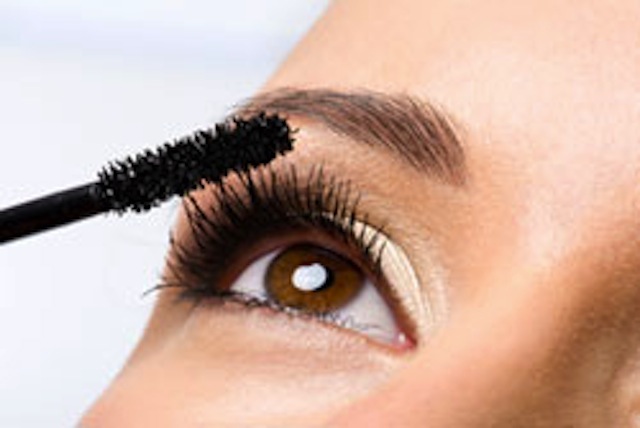
Dr. Denise Garcia, M.D., of Southwestern Eye Center shares some professional tips with AFM regarding how to manage eye cosmetics, from product allergies to eyelash extensions. With these safety tips, your eyes will stay healthy and shining bright.
AFM: What are some basic ways to care for eye cosmetics?
DG: One of the most important things to do with eye cosmetics like mascara and liquid eyeliner is to keep these products clean and uncontaminated. When you first buy them, you cannot always assume that the product is disinfected. Usually there is an FDA-approved label saying that the product has been approved for safe use around the eye. Cleaning brushes as well as keeping wands free of germs is what will prevent infection from any chemicals. Most common market products are tested and approved, but it's never safe to assume.
AFM: Is it really that bad to share makeup with others, even family members?
DG: Yes! Each of us, even siblings, produce different types of bacteria on our face. What's on one person's face will not necessarily be the same bacteria as what's one another's face. Once the cosmetics touch any part of your face, that bacteria is then shared on the cosmetic. Mixing bacteria with others can cause infection with both parties who share the cosmetic. You might get lucky when it comes to sharing, or you might end up threatening your vision.
AFM: How are you able to tell if an allergic reaction occurs?
DG: Any swelling, itchiness or redness of the eyelids are the most common signs to show as soon as a few minutes after applying cosmetic makeup that your skin has a bad reaction to. Whenever you use a new product, make sure to always test it on the top of your hand to see if the skin has any negative reaction. If you are more prone to allergies or know that you have sensitive skin, it might be best to look into hypoallergenic products.
AFM: What's a good amount of time before we should discard our products?
DG: It varies on the product, but I would recommend about three months before discarding. With mascara and liquid eyeliner, because they are fluid, are more prone to bacteria seeping in and growing inside the tube. Especially in Arizona, where our products are exposed to desert heat throughout most of the year, I would recommend being careful about replacing products. When it comes to eye cosmetics like pencil eyeliner, these products can usually last a bit longer, especially if the product is taken care of and encased so the tip of the pencil is not exposed to countertops or the inside of a handbag.
AFM: Eyelash extensions are becoming a widely accepted trend. What are the best things to look out for if we are interested in this semi-permanent eye cosmetic?
DG: Semi-permanent eyelash extensions are safe if you make sure to watch out for these few things. First, make sure to go to a reputable technician, preferably one who is "Lash-Certified." These technicians are trained specifically in lash care and are more likely to use a more expensive type of glue for attaching the lashes, which contain less chemicals. Signs of an allergic reaction will usually occur during the procedure, like burning, swelling, and redness. Make sure to stop the procedure immediately if you experience these symptoms. Lash-Certified technicians have studied in how to care for and treat clients seeking semi-permanent eyelash extensions.

Dr. Denise Garcia, M.D., is board certified by the American Board of Ophthalmology and is a fellow of the American Academy of Ophthalmology. Her area of expertise encompasses the management of abnormalities of the eyelids, lacrimal (tear) system, orbit (the bony cavity surrounding the eye), and cosmetic rejuvenation of the face. She also performs Botox injections and has experience with a variety of dermal fillers.